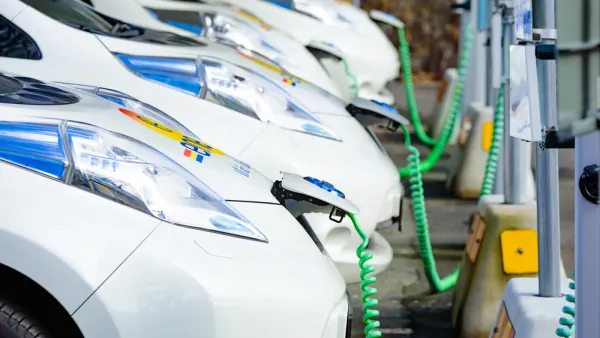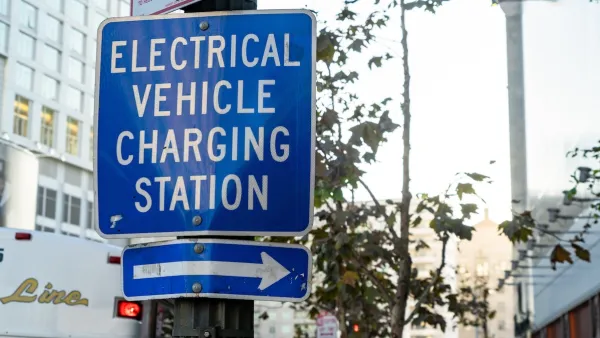A UCLA research team identifies gaps in incentive uptake and electric vehicle registration rates in disadvantaged communities.

California aims to phase out gas-powered cars by 2035, relying on increased electric vehicle (EV) adoption supported by various incentive programs. A recent UCLA Luskin Center for Innovation (LCI) report reveals significant disparities in the effectiveness of these programs, particularly in disadvantaged communities. Despite nearly a million incentives totaling close to $2 billion distributed since 2010, only about 15% of the funds have reached households in these communities.
The study also examines clean vehicle registration rates, showing that while statewide EV adoption has risen, rural areas, the urban core of Los Angeles, and lower-income communities lag behind. This trend is projected to persist through 2035, with marginalized communities falling further behind due to the lack of affordable EV options. Lead author Rachel Connolly emphasizes the need for targeted investments to ensure a just transition to clean energy in California.
To address these equity issues, the LCI report suggests several policy changes, including: increasing funding for targeted EV programs, improving vehicle financing options, enhancing the availability of used clean vehicles, expanding charging infrastructure in disadvantaged areas, and refocusing state platforms to provide financial savings rather than just advertising. These steps are crucial for California to achieve its clean vehicle targets equitably.
FULL STORY: California’s clean vehicle transition is not so equitable (yet)

Analysis: Cybertruck Fatality Rate Far Exceeds That of Ford Pinto
The Tesla Cybertruck was recalled seven times last year.

National Parks Layoffs Will Cause Communities to Lose Billions
Thousands of essential park workers were laid off this week, just before the busy spring break season.

Retro-silient?: America’s First “Eco-burb,” The Woodlands Turns 50
A master-planned community north of Houston offers lessons on green infrastructure and resilient design, but falls short of its founder’s lofty affordability and walkability goals.

Test News Post 1
This is a summary

Analysis: Cybertruck Fatality Rate Far Exceeds That of Ford Pinto
The Tesla Cybertruck was recalled seven times last year.

Test News Headline 46
Test for the image on the front page.
Urban Design for Planners 1: Software Tools
This six-course series explores essential urban design concepts using open source software and equips planners with the tools they need to participate fully in the urban design process.
Planning for Universal Design
Learn the tools for implementing Universal Design in planning regulations.
EMC Planning Group, Inc.
Planetizen
Planetizen
Mpact (formerly Rail~Volution)
Great Falls Development Authority, Inc.
HUDs Office of Policy Development and Research
NYU Wagner Graduate School of Public Service




























